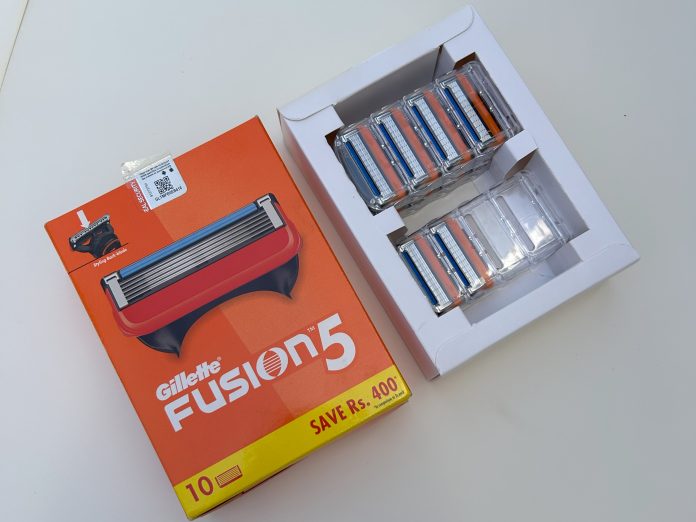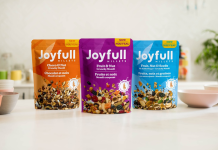At the beginning of the sustainability Summit in Amsterdam in November 2023, Virginie Helias of P&G mentioned the move to paperboard cartons used for the Ariel Ecoclic cartons for its washing pods and Gillette’s move from film and blister packaging to paperboard, which even its competitors have similarly adapted their packaging. Gillette has done this across its various markets, including India, where its razor blade cartridge refills are now sold in cartons, although some stores still have the older inventory of blister packs.
There is another problem for consumers of razor blades, which is the disposal of the used blade cartridges and their plastic magazines. It’s no longer just a blade, but a cartridge – a part of a system, a premium product or an ‘experience.’ There is no end to the possibilities of making shaving more comfortable, especially in an era when men are increasingly reluctant to shave at all. And those who do, are certainly looking for ways to turn this irritating experience into one that is excitingly frictionless and silken smooth. No price is too high for premium shaving devices and cartridges with enhanced tech.
Interestingly, Gillette has addressed the disposal of used razor blade cartridges in the United States by partnering with global recycling company TerraCycle. TerraCycle offers sustainable solutions in partnership with various brands, including what is called ‘the wet shaving industry’ for recycling hard-to-recycle waste streams such as disposable razors and their packaging.
It handles disposable razors and packaging of all brands by collecting and recycling used razors and packaging using collection points at participating retailers and from consumers who can collect these in a secure box provided by retailers together with a label and send these to the company. Consumers can collect used razors, cartridge heads and packaging to put into designated collection bins or put them in puncture-resistant and secure boxes or containers provided by participating brands or retailers.
TerraCycle processes the collected waste streams to recycle the plastics and metals, diverting them from landfills. The recycled materials are ostensibly used to create new products, closing the loop on waste and promoting a circular economy.
Thus far, it seems that the TerraCycle recycling program is only available in the United States and there is no sign of it in India. While sorting waste at source in the country varies in each neighbourhood, village, town and city, it is clear that the number and variety of desirable waste streams will take time to develop.
However, the collection of razor blades is perhaps no more difficult than handling medical waste streams and those of other hazardous chemicals and materials. While the complexity of such waste collection is similar everywhere, our civic systems will require more attention and expenditure in establishing and standardizing waste streams and processes.
At the Packaging Summit, Helias suggested that packaging standardization would help to make recycling a better and perhaps eventually, a frictionless consumer experience but there are several challenges to the widespread implementation of the solutions and innovations that are coming to market.
“Changing an economic system is not easy,” she said. “It requires significant investments in cutting-edge technology, and there is the inertia that resists system churn. Recycling needs more scale… now, it’s all about scaling these innovations to make an impact and rallying against the natural inertia to system change.”
The challenge of system change is significant. As a recycling expert said to us in Mumbai, “The price of oil is just too low, recycled resins just cannot compete with the low prices of virgin polymers and resins.” While large brand owners have big ESG stories and targets, it seems that they are not willing to pay for more sustainable solutions. Nor are they able to invest in CO2 emission reduction. There is a resistance similarly, to shifting to paperboard cartons when flexible laminate solutions are seemingly cheaper.











